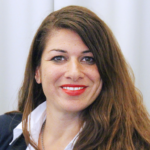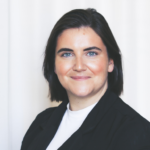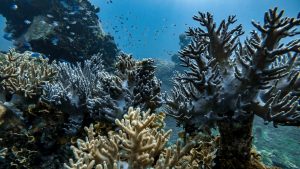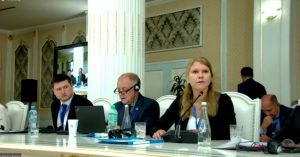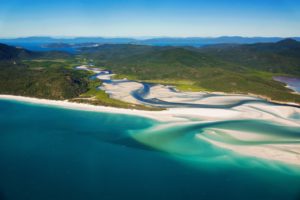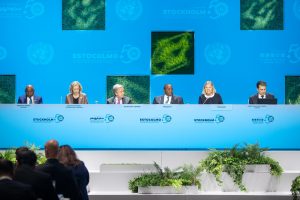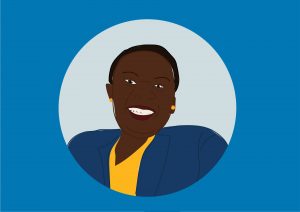- SIWI – Leading expert in water governance
- /
- Latest
- /
- Maggie White on how water found its voice
Maggie White on how water found its voice
Maggie White is the Senior Manager of the International Policy team at SIWI and has worked with trying to get water into climate conversations for over 20 years. She was interviewed recently as part of BBC World Service’s The Compass series on ecological crises.
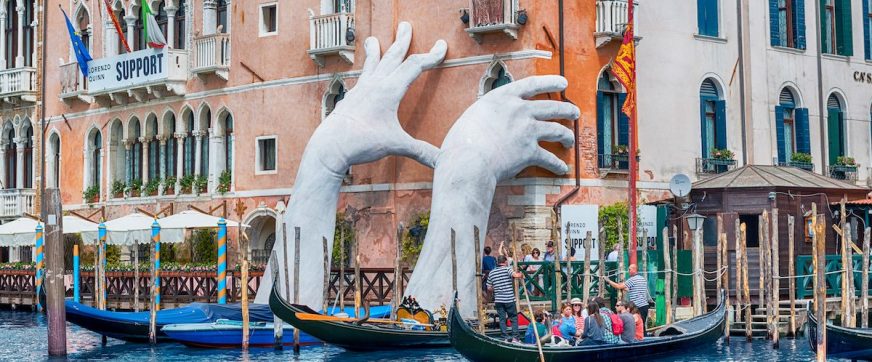
In the interview Maggie sheds new light on why water is actually not even mentioned in the Paris Agreement, despite the fact that the main consequence of global warming is its effect on the water cycle. Maggie White was present in Paris and one of the most vocal advocates for the inclusion of water in the agreement.
A huge obstacle was fear of conflict, Maggie recalls from lobbying efforts during the writing of the Paris Agreement. As water resources are often managed at a local or national level,there were concerns that bringing water into a multilateral agreement could spark issues of sovereignty between countries. The result? That water was not even mentioned in the most important climate agreement in history. Industries which need water are accounted for in global policymaking unilaterally which misses the opportunity for a holistic approach to water management.
Water has the potential to help solve many of the issues threatening or planet, Maggie raises the example of wetlands as carbon sinks, reducing harmful carbon levels in the atmosphere. Shared waters can act as an opportunity for collaboration rather than a cause for conflict.
Maggie highlights that fact that despite water’s importance and omnipresence, it does not have its own champion or lobby group. This is why she and her colleagues are planning a first ever Water Pavilion at the upcoming COP26 in Glasgow in a proactive effort to increase the visibility of water in the climate sphere. An effort which has gained strong support from the water community. A pavilion would put water on a similar standing as countries and regions, and not a second too early.
